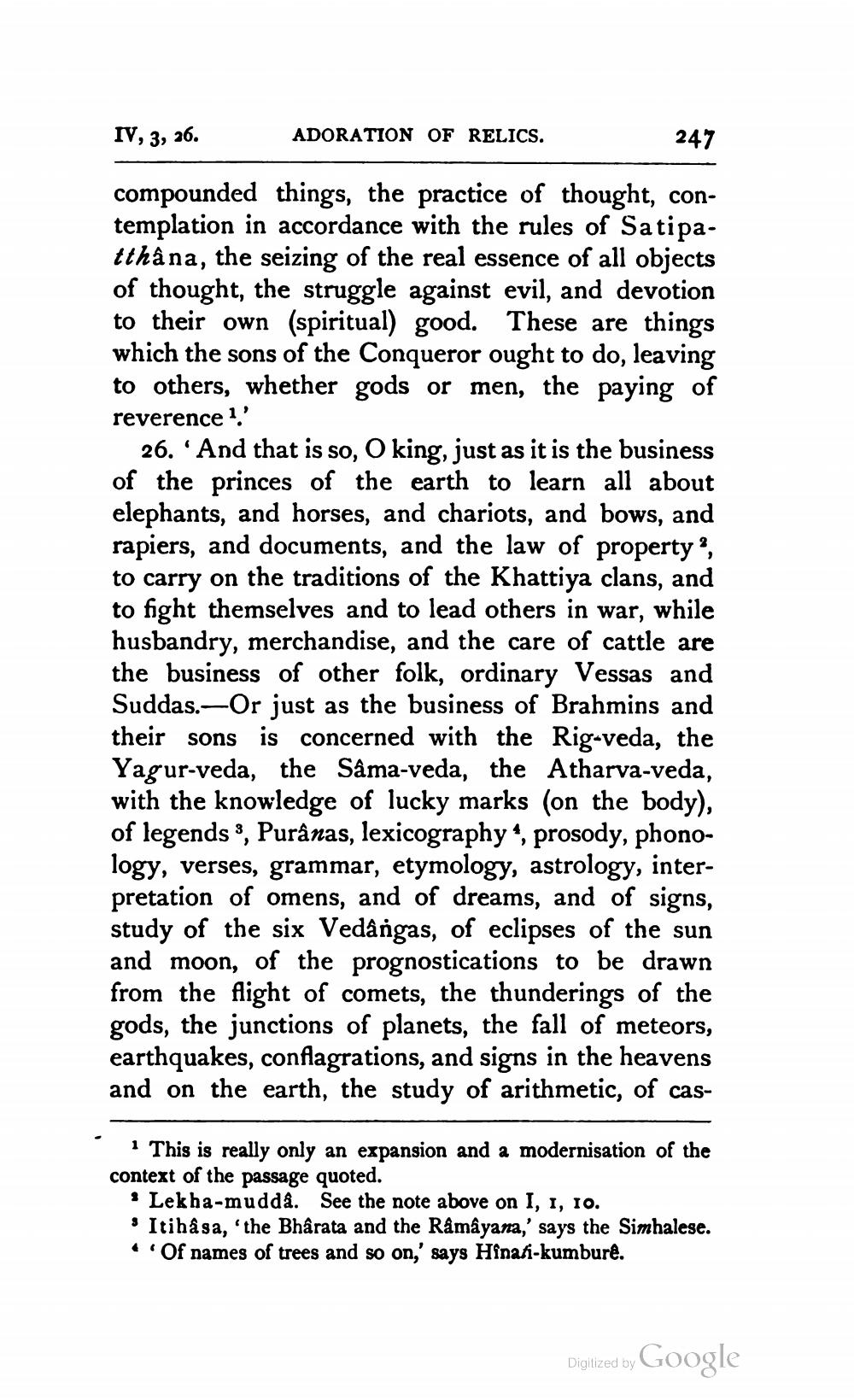________________
IV, 3, 26.
ADORATION OF RELICS.
247
compounded things, the practice of thought, contemplation in accordance with the rules of Satipatthâna, the seizing of the real essence of all objects of thought, the struggle against evil, and devotion to their own (spiritual) good. These are things which the sons of the Conqueror ought to do, leaving to others, whether gods or men, the paying of reverence 1'
26. 'And that is so, O king, just as it is the business of the princes of the earth to learn all about elephants, and horses, and chariots, and bows, and rapiers, and documents, and the law of property ?, to carry on the traditions of the Khattiya clans, and to fight themselves and to lead others in war, while husbandry, merchandise, and the care of cattle are the business of other folk, ordinary Vessas and Suddas.–Or just as the business of Brahmins and their sons is concerned with the Rig-veda, the Yagur-veda, the Sâma-veda, the Atharva-veda, with the knowledge of lucky marks (on the body), of legends 3, Purânas, lexicography, prosody, phonology, verses, grammar, etymology, astrology, interpretation of omens, and of dreams, and of signs, study of the six Vedângas, of eclipses of the sun and moon, of the prognostications to be drawn from the flight of comets, the thunderings of the gods, the junctions of planets, the fall of meteors, earthquakes, conflagrations, and signs in the heavens and on the earth, the study of arithmetic, of cas
This is really only an expansion and a modernisation of the context of the passage quoted. · Lekha-muddå. See the note above on I, 1, 10.
Itihasa, 'the Bhârata and the Ramayana,' says the Simhalese. • Of names of trees and so on,' says Hfnati-kumbure.
Digitized by Google




